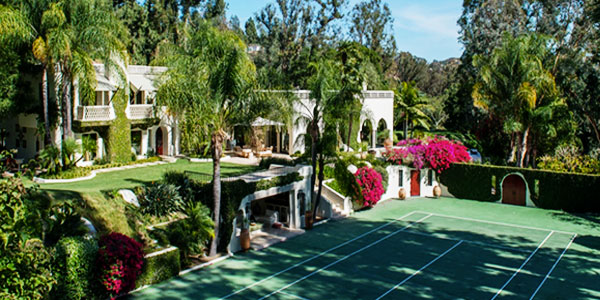The asking price on a sprawling Beverly Hills compound whose previous owners include celebrities like Cher and Eddie Murphy has been cut dramatically, to $69 million, from the initial $85 million in 2016. That’s a near 20 percent drop in two years, a potential indication of a misread of the market.

(Credit: Aaron Kirman)
The property has undergone partial renovations since the main house was built in 1980. That home is 20,000 square feet with 10 bedrooms and 17 bathrooms. The kitchens, bathrooms and finishes will be up to the new owners to update. The estate spans more than 13 acres and includes a 7,000-square-foot guest house, an equestrian facility with two riding rings, a swimming pool, and a tennis court, according to the Wall Street Journal.
Cher, whose bed is reportedly still in the guesthouse, owned the home in the 1980s. She sold it to Murphy in 1988, who sold it seven years later.

(Credit: Aaron Kirman)
The current owner, Vicki Walters, and her late husband, real estate developer Raul Walters, built those facilities and scooped up surrounding parcels to expand the estate to its current size. The couple purchased the home in the 1990s. The grounds include hiking and riding trails, according to the Journal.
The Walters lived in the guest house while renovating the main house, but Raul Walters died in 2009, and his wife left the renovation unfinished.
Luxury single-family sales have been strong this year, but properties over $3 million stay on the market an average of 65 days before selling, more than twice as long as homes below $3 million. Overly optimistic pricing can lead to big price chops and only eight percent of luxury homes sell for more than their asking price, while 30 percent of homes in lower priced segments will sell higher than their ask. [WSJ] – Dennis Lynch
